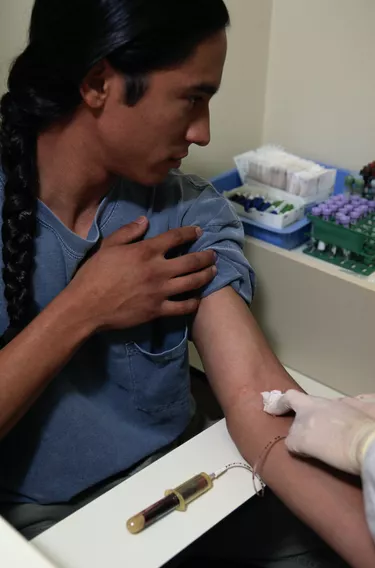
As the liquid part of blood, plasma has important functions like the control of bleeding and infections. Proteins that are in plasma are used to make medications for sufferers of hemophilia, immune disorders and other life threatening conditions. Plasma is also used to treat burn victims, infections and blood loss from injury or surgery. With plasmapheresis -- a process that separates the plasma from the blood and returns the rest of the red blood cells to the donor -- donation procedures available in Tallahassee, it is possible to donate twice within seven days.
Step 1
Confirm that you are eligible to donate. You must be between 18 and 65 years of age, weigh 110 lbs. or more, and, generally, be in good health. You must also have a document that shows your Social Security number and a government issued photo ID such as a driver's license.
Video of the Day
Step 2
Check with your nearest facility to learn if they have residency requirements. For instance, Biomat USA requires that donors live no more than 125 miles from the collection facility. Bring proof of your Tallahassee residency with you.
Step 3
Prepare your body, the day before, for the donation by drinking lots of water, eating a well-balanced diet (no fatty or high-cholesterol foods) and avoiding beverages with alcohol or caffeine.
Step 4
Check in at the reception desk where you will need to show your identification and fill out a medical questionnaire. You will receive a medical screening where your temperature, weight and blood pressure is measured. For your first donation, and once per year afterwards, you will receive a physical examination.
Step 5
Complete your donation and rest until you are told you may leave. Proceed to the counter where you will receive your compensation.
Warning
You will not be able to donate if you had tattoos or piercings within the previous 12 months; gave whole blood within the past eight weeks; are a plasma donor at another center; are pregnant; or have a history of certain diseases. Contact the donation center for details on their requirements.
Video of the Day